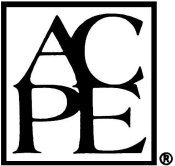
Advance your health care expertise
The College of Pharmacy and Allied Health Professions currently offers six continuing education courses, as well as opportunities and resources for preceptor training.
Continuing Education Courses
Course Authors
- Marla J. Hayes, TC Columbia University
Credit Information
- ACPE Universal Activity Number: 0063-0000-22-024-H01-P
- Credits: 1.5 hour (0.15 CEU)
- Activity Type: Knowledge
- Target Audience: Pharmacists and pharmacy technicians
- Course release date: 3-16-2022
- Expiration date: 3-16-2025
- Activity Fee: $8.50
Contact Hour Details
To receive 1.5 Contact Hours (0.15 CEUs) of continuing education credit, participants will read the provided article, answer the test questions, and complete the course evaluation. A test score of 75% or better is required to earn continuing pharmacy education credit. If a score of 75% (9/12) is not achieved on the first attempt, participants can complete one retest at no additional charge. Credit upload to a participant’s eProfile account will be completed within two weeks following successful completion of this course.
Pharmacist Learning Objectives
- Understand the emerging trend to utilize pharmacists as care extenders in diabetes care.
- Evaluate the history of present-day healthcare language and identify its shortcoming in diabetes care.
- Analyze why the language used in diabetes care matters.
- Apply the impact of a pharmacist's language on diabetes self-care.
- Create examples of disengaging language used by pharmacists in diabetes care.
- Remember two guiding principles for transitioning to person-centered language.

Accreditation Information | The South Dakota State University College of Pharmacy and Allied Health Professions is accredited by the Accreditation Council for Pharmacy Education as a provider of continuing Pharmacy Education.
It is the policy of the College of Pharmacy and Allied Health Professions that all sponsored CPE programming present evidence-based information that is professionally objective and non-commercial / non-promotional.
System Requirements
Please ensure the computer system you plan to use meets the following minimum requirements:
- Operating System: Windows 7 or higher, macOS Sierra (10.12) or higher
- Internet Browser: Chrome 30 or higher, Firefox 27 or higher, Internet Explorer 11, Microsoft Edge, Safari 9 or higher
- Internet connection: Cable, High-speed DSL, and any other medium that is internet accessible.
- Peripherals: Computer speakers or headphones Media Viewing Requirements: Adobe Reader, HTML5
- Education Disclaimer
The author(s) of this continuing education activity have made reasonable efforts to ensure that all information contained herein is accurate in accordance with the latest available scientific evidence at the time of publication. However, because information regarding medications, treatment guidelines, and other healthcare information is subject to constant change, the participant is advised to always confirm practice resources before applying any learned information in practice. Activities produced by SDSU Continuing Pharmacy Education are intended solely for purposes of supplementing health care professionals' knowledge. The opinions expressed in this educational activity are those of the faculty and do not necessarily represent the views of South Dakota State University College of Pharmacy and Allied Health Professions.
Course Authors
- Kayla Kniefel, Pharm.D.
- Scout Forbes-Hurd, Pharm.D., Clinical Pharmacy Specialist, College of Pharmacy and Allied Health Professions
Credit Information
- ACPE Universal Activity Number: 0063-0000-22-026-H01-P
- Credits: 1.5 hour (0.15 CEU)
- Activity Type: Knowledge
- Target Audience: Pharmacists and pharmacy technicians
- Course release date: 3-16-2022
- Expiration date: 3-16-2025
- Activity Fee: $8.50
Contact Hour Details
To receive 1.5 Contact Hours (0.15 CEUs) of continuing education credit, participants will read the provided article, answer the test questions, and complete the course evaluation. A test score of 75% or better is required to earn continuing pharmacy education credit. If a score of 75% (9/12) is not achieved on the first attempt, participants can complete one retest at no additional charge. Credit upload to a participant’s eProfile account will be completed within two weeks following successful completion of this course.
Pharmacist Learning Objectives
- Summarize the epidemiology and pathophysiology of Parkinson's Disease.
- List risk factors and protective factors for the development of Parkinson's Disease.
- Identify medications that can cause drug-induced parkinsonism.
- Name the different classes of Parkinson's medications and specifically identify which class agents fall into.
- Identify appropriate monotherapy agents for the initial treatment of Parkinson's disease.
- List agents that are contraindicated for use in Parkinson's Disease patients.
- Counsel patients on the importance of adherence to Parkinson's medications

Accreditation Information | The South Dakota State University College of Pharmacy and Allied Health Professions is accredited by the Accreditation Council for Pharmacy Education as a provider of continuing Pharmacy Education.
It is the policy of the College of Pharmacy and Allied Health Professions that all sponsored CPE programming present evidence-based information that is professionally objective and non-commercial / non-promotional.
System Requirements
Please ensure the computer system you plan to use meets the following minimum requirements:
- Operating System: Windows 7 or higher, macOS Sierra (10.12) or higher
- Internet Browser: Chrome 30 or higher, Firefox 27 or higher, Internet Explorer 11, Microsoft Edge, Safari 9 or higher
- Internet connection: Cable, High-speed DSL, and any other medium that is internet accessible.
- Peripherals: Computer speakers or headphones Media Viewing Requirements: Adobe Reader, HTML5
- Education Disclaimer
The author(s) of this continuing education activity have made reasonable efforts to ensure that all information contained herein is accurate in accordance with the latest available scientific evidence at the time of publication. However, because information regarding medications, treatment guidelines, and other healthcare information is subject to constant change, the participant is advised to always confirm practice resources before applying any learned information in practice. Activities produced by SDSU Continuing Pharmacy Education are intended solely for purposes of supplementing health care professionals' knowledge. The opinions expressed in this educational activity are those of the faculty and do not necessarily represent the views of South Dakota State University College of Pharmacy and Allied Health Professions.
Course Authors
- Jenna Van Beek, Pharm.D., Pharmacy Resident, Avera McKennan Hospital and University Health Center
- Scout Forbes-Hurd, Pharm.D., Clinical Pharmacy Specialist, College of Pharmacy and Allied Health Professions
Credit Information
- ACPE Universal Activity Number: 0063-0000-22-025-H01-P
- Credits: 1.0 hour (0.1 CEU)
- Activity Type: Knowledge
- Target Audience: Pharmacists and pharmacy technicians
- Course release date: 3-16-2022
- Expiration date: 3-16-2025
- Activity Fee: $8.50
Contact Hour Details
To receive 1.0 Contact Hours (0.1 CEUs) of continuing education credit, participants will read the provided article, answer the test questions, and complete the course evaluation. A test score of 75% or better is required to earn continuing pharmacy education credit. If a score of 75% (6/8) is not achieved on the first attempt, participants can complete one retest at no additional charge. Credit upload to a participant’s eProfile account will be completed within two weeks following successful completion of this course.
Pharmacist Learning Objectives
- Define the term "medication error, sentinel event and culture of safety."
- Describe common types of medication errors, identify factors that contribute to these errors, and who is in charge of preventing medication errors in the pharmacy.
- List two free of charge medication error reporting programs.
- Explain strategies for preventing common medication errors.

Accreditation Information | The South Dakota State University College of Pharmacy and Allied Health Professions is accredited by the Accreditation Council for Pharmacy Education as a provider of continuing Pharmacy Education.
It is the policy of the College of Pharmacy and Allied Health Professions that all sponsored CPE programming present evidence-based information that is professionally objective and non-commercial / non-promotional.
System Requirements
Please ensure the computer system you plan to use meets the following minimum requirements:
- Operating System: Windows 7 or higher, macOS Sierra (10.12) or higher
- Internet Browser: Chrome 30 or higher, Firefox 27 or higher, Internet Explorer 11, Microsoft Edge, Safari 9 or higher
- Internet connection: Cable, High-speed DSL, and any other medium that is internet accessible.
- Peripherals: Computer speakers or headphones Media Viewing Requirements: Adobe Reader, HTML5
- Education Disclaimer
The author(s) of this continuing education activity have made reasonable efforts to ensure that all information contained herein is accurate in accordance with the latest available scientific evidence at the time of publication. However, because information regarding medications, treatment guidelines, and other healthcare information is subject to constant change, the participant is advised to always confirm practice resources before applying any learned information in practice. Activities produced by SDSU Continuing Pharmacy Education are intended solely for purposes of supplementing health care professionals' knowledge. The opinions expressed in this educational activity are those of the faculty and do not necessarily represent the views of South Dakota State University College of Pharmacy and Allied Health Professions.
Course Author
Kailey Meyer, Pharm.D., Avera McKennan Hospital and University Health Center
Credit Information
- ACPE Activity Number: 0063-0000-24-001-H01-P 0063-0000-24-001-H01-T
- Release Date: 2-8-2024
- Expiration Date: 2-8-2027
- Activity Type: Knowledge-based
- Target Audience: Pharmacists and pharmacy technicians
- CE Credits: 2.0 Contact Hour (0.20 CEUs)
- Activity Fee: $12
Contact Hour Details
To receive 2.0 Contact Hours (0.20 CEUs) of continuing education credit, participants will read the provided article, answer the test questions, and complete the course evaluation. A test score of 70% or better is required to earn continuing pharmacy education credit. If a score of 70% (4/5) is not achieved on the first attempt, participants can complete one retest at no additional charge. Credit upload to a participant’s eProfile account will be completed within two weeks following successful completion of this course.
Learning Objectives
Pharmacist Learning Objectives
- Describe pharmacokinetic and pharmacodynamic changes in pregnant patients.
- Understand evidence-based management for common obstetric emergencies.
- Identify characteristics and symptoms associated with various obstetric emergencies.
- Provide pharmacologic recommendations when presented with a patient in an obstetric emergency.
- Review current treatment guidelines for the management of cardiac arrest in pregnancy.
Pharmacy Technician Learning Objectives
- Define obstetric emergencies that occur during pregnancy/postpartum.
- Identify risk factors for obstetric emergencies.
- Understand the need for teamwork and communication during obstetric emergencies.
- Investigate the role of different pharmacologic agents in obstetric emergencies.
- Examine the role of pharmacy in the management of cardiac arrest in pregnancy.

Accreditation Information | The South Dakota State University College of Pharmacy and Allied Health Professions is accredited by the Accreditation Council for Pharmacy Education as a provider of continuing Pharmacy Education.
It is the policy of the College of Pharmacy and Allied Health Professions that all sponsored CPE programming present evidence-based information that is professionally objective and non-commercial / non-promotional.
System Requirements
Please ensure the computer system you plan to use meets the following minimum requirements:
- Operating System: Windows 7 or higher, macOS Sierra (10.12) or higher
- Internet Browser: Chrome 30 or higher, Firefox 27 or higher, Internet Explorer 11, Microsoft Edge, Safari 9 or higher
- Internet connection: Cable, High-speed DSL, and any other medium that is internet accessible.
- Peripherals: Computer speakers or headphones Media Viewing Requirements: Adobe Reader, HTML5
- Education Disclaimer
The author(s) of this continuing education activity have made reasonable efforts to ensure that all information contained herein is accurate in accordance with the latest available scientific evidence at the time of publication. However, because information regarding medications, treatment guidelines, and other healthcare information is subject to constant change, the participant is advised to always confirm practice resources before applying any learned information in practice. Activities produced by SDSU Continuing Pharmacy Education are intended solely for purposes of supplementing health care professionals' knowledge. The opinions expressed in this educational activity are those of the faculty and do not necessarily represent the views of South Dakota State University College of Pharmacy and Allied Health Professions.
Course Author
Nicholas Cook, Pharm.D., Avera McKennan Hospital and University Health Center
Credit Information
- ACPE Activity Number: 0063-0000-24-002-H01-P
- Release Date: 2-8-2024
- Expiration Date: 2-8-2027
- Target Audience: Pharmacists and pharmacy technicians
- Activity Type: Knowledge-based
- CE Credits: 2.0 Contact Hour (0.20 CEUs)
- Activity Fee: $12
Contact Hour Details
To receive 2.0 Contact Hours (0.20 CEUs) of continuing education credit, participants will read the provided article, answer the test questions, and complete the course evaluation. A test score of 70% or better is required to earn continuing pharmacy education credit. If a score of 70% (4/5) is not achieved on the first attempt, participants can complete one retest at no additional charge. Credit upload to a participant’s eProfile account will be completed within two weeks following successful completion of this course.
Learning Objectives
- Discuss the fundamental hemodynamic parameters that are affected by vasoactive medications and different types of shock.
- Review general receptor pharmacology relating to the mechanism of action of common vasoactive agents.
- Describe the mechanism of action, dosing, adverse effects and place in therapy of various vasopressors.
- Examine literature on vasopressor use and apply literature and guideline recommendations to different types of shock.
- Evaluate the risks and benefits of peripheral vasopressor administration.

Accreditation Information | The South Dakota State University College of Pharmacy and Allied Health Professions is accredited by the Accreditation Council for Pharmacy Education as a provider of continuing Pharmacy Education.
It is the policy of the College of Pharmacy and Allied Health Professions that all sponsored CPE programming present evidence-based information that is professionally objective and non-commercial / non-promotional.
System Requirements
Please ensure the computer system you plan to use meets the following minimum requirements:
- Operating System: Windows 7 or higher, macOS Sierra (10.12) or higher
- Internet Browser: Chrome 30 or higher, Firefox 27 or higher, Internet Explorer 11, Microsoft Edge, Safari 9 or higher
- Internet connection: Cable, High-speed DSL, and any other medium that is internet accessible.
- Peripherals: Computer speakers or headphones Media Viewing Requirements: Adobe Reader, HTML5
- Education Disclaimer
The author(s) of this continuing education activity have made reasonable efforts to ensure that all information contained herein is accurate in accordance with the latest available scientific evidence at the time of publication. However, because information regarding medications, treatment guidelines, and other healthcare information is subject to constant change, the participant is advised to always confirm practice resources before applying any learned information in practice. Activities produced by SDSU Continuing Pharmacy Education are intended solely for purposes of supplementing health care professionals' knowledge. The opinions expressed in this educational activity are those of the faculty and do not necessarily represent the views of South Dakota State University College of Pharmacy and Allied Health Professions.
Course Author
Kelcy Sorenson, Pharm.D., Avera McKennan Hospital and University Health Center
Credit Information
- ACPE Activity Number: 0063-0000-24-003-H01-P ; 0063-0000-24-003-H01-T
- Release Date: 2-8-2024
- Expiration Date: 2-8-2027
- Target Audience: Pharmacists and pharmacy technicians
- Activity Type: Knowledge-based
- CE Credits: 2.0 Contact Hour (0.20 CEUs)
- Activity Fee: $12
Contact Hour Details
To receive 2.0 Contact Hours (0.20 CEUs) of continuing education credit, participants will read the provided article, answer the test questions, and complete the course evaluation. A test score of 70% or better is required to earn continuing pharmacy education credit. If a score of 70% (4/5) is not achieved on the first attempt, participants can complete one retest at no additional charge. Credit upload to a participant’s eProfile account will be completed within two weeks following successful completion of this course.
Learning Objectives
Pharmacist Objectives
- Review current treatment guidelines for post-cardiac arrest care in comatose patients.
- Discuss the targeted temperature management (TTM) process.
- Evaluate the risks and benefits of TTM.
- Analyze literature that influences current TTM practices.
- Predict how TTM may change in the future.
Pharmacy Technician Objectives
- Define TTM.
- Understand when and why TTM is used.
- Identify the possible risks and benefits of TTM.
- Investigate the role of different pharmacologic agents in TTM.
- Examine the controversy surrounding ongoing TTM use.

Accreditation Information | The South Dakota State University College of Pharmacy and Allied Health Professions is accredited by the Accreditation Council for Pharmacy Education as a provider of continuing Pharmacy Education.
It is the policy of the College of Pharmacy and Allied Health Professions that all sponsored CPE programming present evidence-based information that is professionally objective and non-commercial / non-promotional.
System Requirements
Please ensure the computer system you plan to use meets the following minimum requirements:
- Operating System: Windows 7 or higher, macOS Sierra (10.12) or higher
- Internet Browser: Chrome 30 or higher, Firefox 27 or higher, Internet Explorer 11, Microsoft Edge, Safari 9 or higher
- Internet connection: Cable, High-speed DSL, and any other medium that is internet accessible.
- Peripherals: Computer speakers or headphones Media Viewing Requirements: Adobe Reader, HTML5
- Education Disclaimer
The author(s) of this continuing education activity have made reasonable efforts to ensure that all information contained herein is accurate in accordance with the latest available scientific evidence at the time of publication. However, because information regarding medications, treatment guidelines, and other healthcare information is subject to constant change, the participant is advised to always confirm practice resources before applying any learned information in practice. Activities produced by SDSU Continuing Pharmacy Education are intended solely for purposes of supplementing health care professionals' knowledge. The opinions expressed in this educational activity are those of the faculty and do not necessarily represent the views of South Dakota State University College of Pharmacy and Allied Health Professions.
Ready to learn?
Preceptor Training and Resources
The College of Pharmacy and Allied Health Professions considers our pharmacist preceptors to be invaluable and necessary assets. Pharmacist preceptors teach students practice skills necessary to provide quality pharmacy care. In addition to serving as a teacher, pharmacist preceptors are mentors that promote personal and professional growth in student pharmacists. The College provides library access to pharmacist preceptors. Please email Jodi Heins for library access instructions.

The College of Pharmacy and Allied Health Professions has partnered with The Collaborative Education Institute (CEI) to provide our preceptors with professional development resources. CEI offers a variety of programs to help preceptors develop as educators and engage students at their practice sites. Approved preceptors can access the CEI resources through the E*Value website.
Learn More
For more information, contact:

Jodi Heins
Director of Experiential Education/Professor, Residency Program Director
College of Pharmacy and Allied Health Professions
Department of Pharmacy Practice

Scout Forbes-Hurd
Assistant Professor/Continuing Education and Experiential Education Coordinator
College of Pharmacy and Allied Health Professions
Department of Pharmacy Practice


